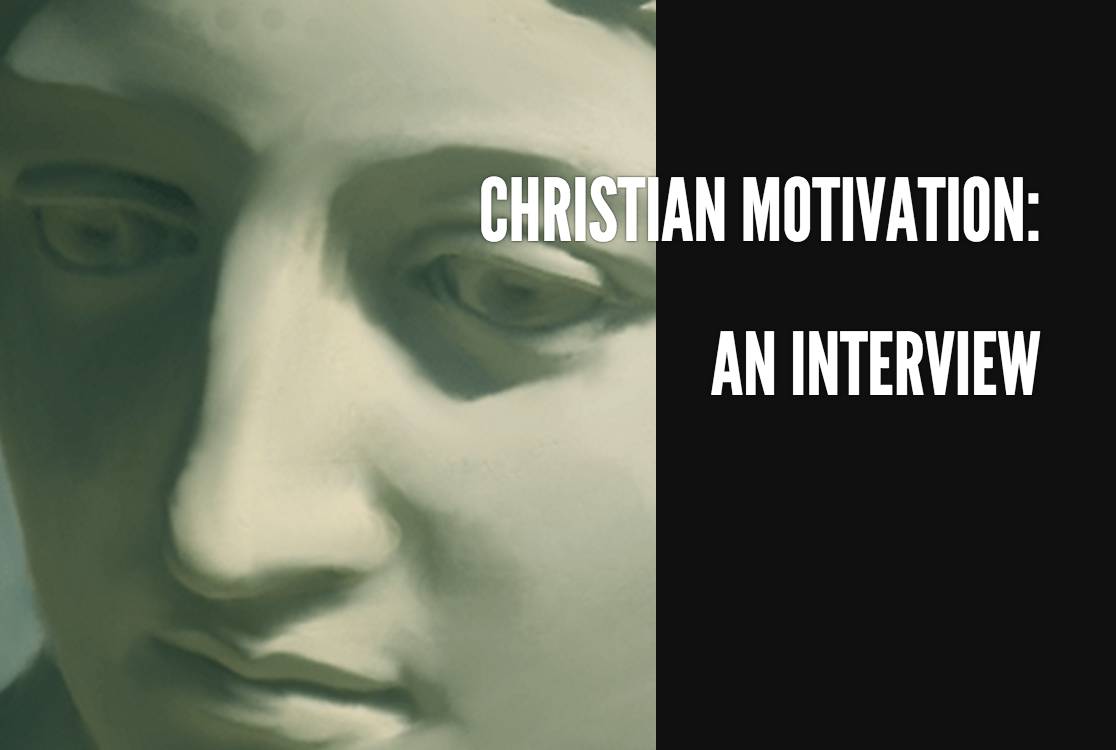“Put others first.” “You think too highly of yourself.” “You’re selfish.”
If you hear these ideas enough, they can take over your understanding of morality.
What should our motivation be? Why care about doing the right thing?
I recently interviewed a writer named Lydia Borengasser. We found common ground on the controversial topic of Christian motivation.
Cody: Could you tell me about your blog?
Lydia: My blog is called Journey of the Word. It’s about the joy of knowing God through his word, and it’s about reading Scripture with new eyes. I want to be able to see Scripture for what it is, without bringing in misconceptions. And I want to encourage this in other people.
Cody: What have you been learning?
Lydia: I recently discovered something about motives that I didn’t expect. I was studying through Ephesians with a friend, looking closely at every phrase and every word. What does it say for itself? When I read the passage in Ephesians 6:5-8 about bondservants, I was struck by what I saw:
It says a bondservant should obey his masters from the heart, to the Lord, not as to men, knowing that whatever good he does, he will receive back from the Lord.
It put a strong emphasis on reward, and I didn’t expect that. I had seen the same in Malachi (2:1-2, 3:7, 3:10, 4:1-6). It’s a new idea to me that reward is the right reason to do something.
Cody: Did this change your ideas about your relationship with God?
Lydia: It changed my understanding of how God has ordered things and created us to think. I know God is most interested in his own glory. But I realized that when we seek him as our own reward this does give him glory. This helped me understand more about what it means that God loves us and wants the best for us. It means he puts a blessing in front of us. He wants us to want the blessing.
Cody: Does God do this for his own glory?
Lydia: Ultimately, yes. He loves us and is glorified by loving us. It surprises me that he would be that open in his desire for good for his children.
I kept thinking about it. I went to the gospel: Why do I place my faith in Jesus Christ? Not because he says so, or because he’s God, but because I need to be saved from my sin and gain eternal life. Self-interest seems to be a consistent idea throughout Scripture.
Cody: What had you thought about motivation before?
Lydia: We are all taught from an early age to think of others and to not have “selfish” motives. Christians emphasize that we should not be “lovers of self” or be self-seeking. It seems as if morality is mainly about putting others first. John 3:30 says, “He must increase, but I must decrease.” I think Christians have taken this as a prescription for spiritual growth.
Cody: It’s the idea that morality is about not wanting things for yourself. Only duty.
Lydia: I always heard, “You do this because it is right.” Now I realize that there’s more to it than that. There needs to be a reason I would want to do the right thing, and God gives us reasons. It’s not about forcing yourself to do the right thing for a reason detached from your own good.
Cody: It’s a big shift in perspective. Did this change your life?
Lydia: My thinking has changed as I relate to others. I used to feel guilty doing something and expecting something in return. But not anymore. I realized that I had always thought it was wrong to seek blessing for oneself, and I had not really asked why. But God designed us to seek blessing; this is the right motive.
Cody: Once you started thinking about these questions, was it hard to let go of old notions?
Lydia: Looking at Scripture, my desire is to accept what Scripture says, even if it is contrary to what I have always believed. Scripture says it, and that is enough. But sometimes the presuppositions I have do make it hard to see Scripture for what it is.
Cody: I thought of an example of this: 1 Peter 5:6 says, “Humble yourselves therefore under the mighty hand of God, that he may exalt you in due time.” I used to find this confusing. Should I want to be exalted? Should I humble myself that he may exalt me?
Lydia: It seems so. It’s no easy task to read Scripture for what it says, not what others have placed on it.
Cody: That’s why we need a Journey of the Word.
I hope you’ll check out Lydia’s blog. You can find it at http://journeyoftheword.com/
